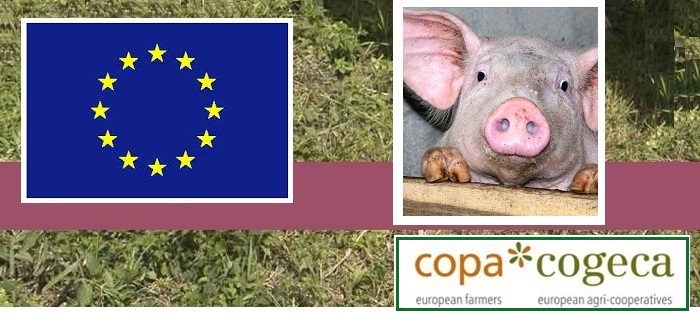Europe’s farming organisations have challenged the European Commission (EC) to develop tools at farm level post-2020 to help producers better manage the risks of increasingly volatile markets.
Unveiled by Copa & Cogeca during this week’s Congress of European Farmers in Greece, the new “tools” being sought include better risk management measures, insurance, futures markets and stronger measures to manage the market. The two organisations have also called for production to be “better targeted” towards consumer demands.
“For two years now, we have been faced with an imbalance on agricultural commodity markets and continuously falling profits, squeezed by low market prices and high input costs,” said Copa president, Martin Merrild, adding that the situation was made a lot worse by the Russian ban on EU farm exports.
“We have now recovered most of the exports that we lost due to this ban, but the markets remain fragile. EU dairy and pork markets are showing signs of recovery due to higher demand from China, but the EU grain market is still in a difficult situation, with EU farmers suffering from cash flow problems.”
With the EC set to release a communication on the Common Agricultural Policy (CAP) post-2020, outlining its first thoughts on the CAP post-2020 next summer, Copa & Cogeca stated that is it important for producer bodies to develop ideas to feed into the EC process, ensuring that the EU has an agriculture sector in the future which is more capable of responding to agricultural crises of the type which farmers have just been through.
Cogeca president, Thomas Magnusson, added that, in an increasingly market oriented sector, the economic role of agricultural cooperatives (his membership) is becoming more and more important.
“A successful cooperative also needs to be innovative and to develop products that the consumer wants if they are to bring these rewards to their farmer members,” he said.
“We must also take into account the heterogeneous situation of cooperatives across the EU. There are some very big cooperatives in countries such as Germany, the Netherlands, Denmark and Sweden. But the vast majority of the 22 000 cooperatives are small or medium sized. In the future, EU policies must take this into account and allow cooperatives to grow in size and scale.”
Mr Magnusson also stressed the need for the EC to press ahead with free trade agreements, which are beneficial to the EU agriculture sector and use its promotion measures to develop markets further for the EU’s quality products.
“The current free trade negotiations between the EU and Japan must move ahead to reach an agreement the earliest as possible,” he said, adding that the CAP, post-2020, must take these elements into account if the EU is to have a successful agriculture sector in the future.




